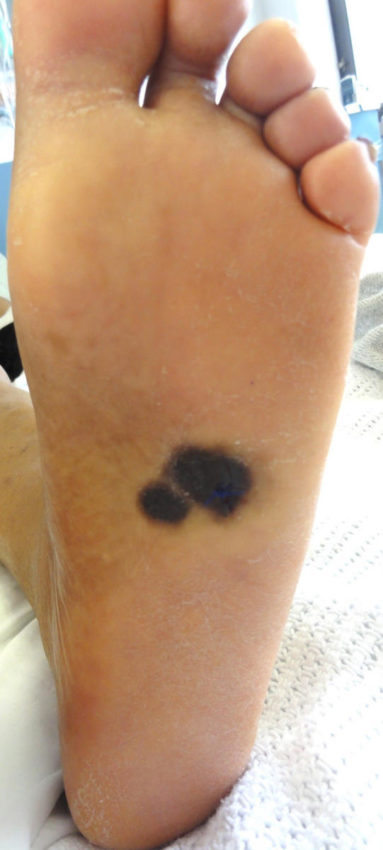SAN ANTONIO (July 19, 2017) ― With temperatures rising and little rain in sight, San Antonians are getting an extreme dose of sunshine. With that comes an increased risk of skin cancer, the most commonly diagnosed cancer in the U.S., according to the American Cancer Society.
UT Health Cancer Center, part of UT Health San Antonio, is offering free skin cancer screenings from 5:30 to 7:30 p.m. on Thursday, Aug. 10. The screenings will be held at UT Health Cancer Center, 7979 Wurzbach Road.
Risk factors
The major risk factor for getting skin cancer is exposure to too much ultraviolet (UV) light. The primary source of UV light is the sun, but tanning beds also are a significant source of UV rays.
Using indoor tanning beds before age 35 can increase your risk of melanoma, the deadliest form of skin cancer, by 75 percent and the risk increases with each use, according to the Skin Cancer Foundation.
Some of the other risk factors for skin cancer are light skin, age, the male gender, radiation exposure and previous skin cancer.
Protecting your skin
“Covering up your skin; staying in the shade; and using a hat, sunglasses and sunscreen are the best ways to protect your skin,” said Sandra Osswald, M.D., associate professor and chief of the Division of Dermatology and Cutaneous Surgery at UT Health. She recommends using a sunscreen that protects against both UVA and UVB rays, and has a sun protection factor (SPF) of at least 30.
1 in 5 will get skin cancer
There are three main types of skin cancer: basal cell carcinoma, squamous cell carcinoma and melanoma. Basal cell carcinoma is the most common with squamous cell carcinoma being second. Melanoma, which causes only 1 percent of skin cancer, accounts for the most skin cancer deaths. It is estimated that 1 in 5 Americans will be diagnosed with skin cancer in their lifetime.
According to the American Cancer Society’s “Cancer Facts & Figures 2017,” approximately 87,110 new cases of melanoma are expected to be diagnosed and 9,730 deaths are predicted for this year. On average, one person dies from melanoma every hour.
The only way to know if you have skin cancer is to be examined by a doctor, such as a dermatologist, who specializes in skin diseases. To make your appointment for the free skin screening by a UT Health Cancer Center dermatologist on Aug. 10, visit https://makelivesbetter.uthscsa.edu/skincancer or call (210) 450-5581.
# # #
For current news from the UT Health Science Center San Antonio, now called UT Health San Antonio™, please visit our online newsroom, like us on Facebook or follow us on Twitter.
# # #
The University of Texas Health Science Center at San Antonio, with missions of teaching, research and healing, is one of the country’s leading health sciences universities and is now called UT Health San Antonio™. UT Health’s schools of medicine, nursing, dentistry, health professions and graduate biomedical sciences have produced more than 33,000 alumni who are advancing their fields throughout the world. With seven campuses in San Antonio and Laredo, UT Health has a FY 2017 revenue operating budget of $806.6 million and is the primary driver of its community’s $37 billion biomedical and health care industry. For more information on the many ways “We make lives better®,” visit www.uthscsa.edu.


